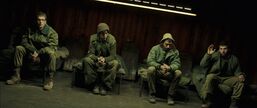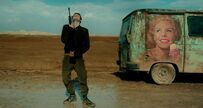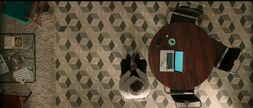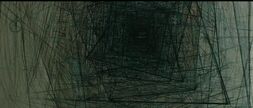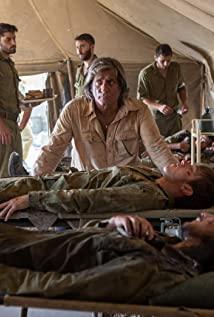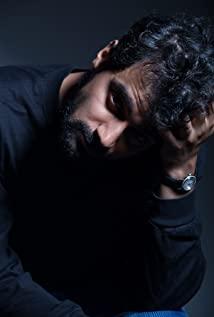Most of the scenes in the first segment take place in Michael and Dafna's apartment, where minimalist and modern decor, well-planned spaces, unrealistic window views and limited camera shifts trigger a staged situation. Create the theater-like illusion of being in it. In this claustrophobic space, the oppressive close-up of the camera traps Michael in a cramped situation, infinitely magnifying his mania exposed to the great sadness, and the tension heated up by emotions is like a sharp noise scratching the viewer's nerves. The second segment of the movie moves to the desolate northern border checkpoint, where four soldiers, including Jonathan, are stationed - their main task, in addition to routinely checking vehicles and people, has to be happy. The camels that pass slowly by themselves are released. The emotional tension and claustrophobic confined physical space in the first paragraph are suddenly relieved in the open and boundless desert. For a moment, the sadness induced by the news of the death suddenly turned into a surreal absurdity. The sky is as unreal as it is dyed blue by paint. In front of the outdated hand-painted billboard, the lonely soldier grabs the rifle as a dance partner, and steps on the lonely foxtrot on the empty road; in the wet and muddy container, Over and over, they test the sloping degree of tumbled cans of lunchmeat, and use salty "Last Bedtime Story" to spice up the tedious repetition of life. Of course, let’s not forget the quagmire of war and the military duty they are in, and the little bit that comes with that duty goes above and beyond the rights of Palestinian civilians: Arab travelers passing through checkpoints are always forced to accept the soldiers’ long and even Humiliating inspection. And this right made this group of soldiers who are no different from ordinary young people prematurely pushed to the position of killing decision, which led to a tragedy of manslaughter.
View more about Foxtrot reviews



